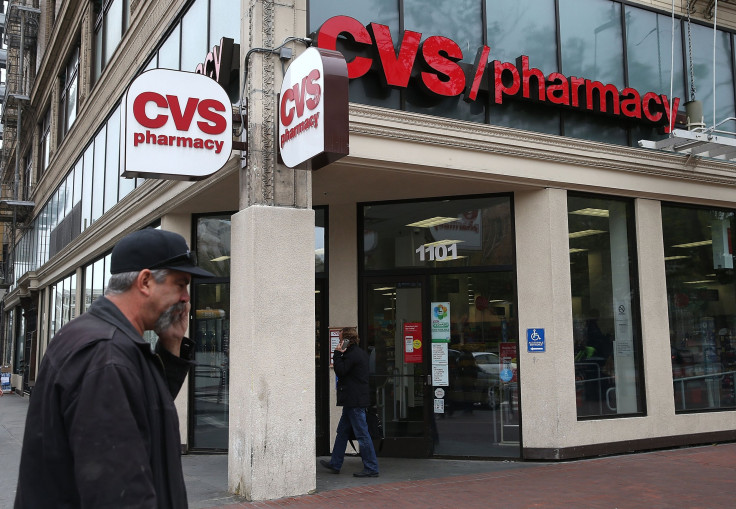Healthcare 2015: Why Millennials Avoid Seeing Doctors And What This Means For Rising Healthcare Costs

When her stomach began to hurt a few weeks ago, Emily Torres, 25, put off calling the doctor. She wanted to see if the ache would subside on its own. Besides, because she didn’t have a regular physician, she wasn’t quite sure whom to see. Finally, after four days of pain, she did some research, made a phone call and eventually saw an internist. By then, her stomachache had dissipated.
Torres' delay in seeing a doctor hardly differentiates her from her peers. In fact, it makes her the norm. Millennials, the generation between the ages of 18 and 34, do not visit doctors the way other age groups typically do, a growing body of evidence shows. Not only do they forgo healthcare in favor of other priorities, when they do need medical attention, they turn to Google and WebMD before visiting actual doctors, whom they are less like to visit repeatedly or regularly. These habits, doctors and public health experts say, could not only jeopardize young people’s health but also potentially increase healthcare costs over the long run.
“A lot of young adults feel they have absolutely no time to go to the doctor,” said Dr. Karen Soren, director of adolescent medicine at New York Presbyterian Morgan Stanley Children’s Hospital and an associate professor at Columbia University Medical Center. “Young adults don’t have that sense of job security within their employment settings. And they feel healthcare is relatively expendable.”
For Torres, who moved to Los Angeles from Indianapolis in January and writes the blog Minimal Millennial, finally making an appointment to see a doctor about her stomachache felt like a milestone. Calling the doctor had somehow been intimidating, in a way she described as "silly." Yet she knew it had to be done. “We’re adults now,” she said. “We have to do this kind of stuff.”
More than half of millennials use retail clinics, urgent care centers or emergency rooms for nonemergency care, and they are more prone to do so than people in other age groups, according to a survey by the nonprofit FAIR Health, which conducts research on health data. Research by other firms has generated similar findings.
For this young generation, the Affordable Care Act of 2010 has been both a blessing and a curse. It allowed children to stay on their parents' health insurance plan until the age of 26 and vastly expanded access to healthcare coverage for all Americans, employed or not. But the law failed to render health insurance less confusing. In fact, it has done the opposite, even its supporters admit.
The repercussions of skipping visits to the doctor could last far longer than the time and money spent on a visit, however. When people ignore physical and mental health problems as youth, those issues were more likely to return or last into adulthood, a study published in mid-August in the journal Pediatrics showed.
Half of millennials surveyed by ZocDoc, an online appointment website, in June said they visited a doctor less than once a year, with 93 percent saying they did not schedule preventative visits to the doctor. And 42 percent of millennials said they would most likely cancel a checkup because they were too busy, according to the survey. The millennial generation is also more likely to attempt to solve medical issues independently, with 28 percent saying they would self-diagnose and 36 percent saying they would treat themselves at home, even before seeing a doctor, according to a 2014 healthcare study by the consulting firm Communispace, which now goes by the name C Space. With the rise of online tools like WebMD, home doctoring requires only a few clicks or taps of the finger.
“It’s not a priority,” Soren said, adding that she worried about millennials' tendency to use urgent care clinics and emergency rooms, where patients see whoever is on call rather than the same doctor consistently.
“Some of us in the [medical] profession are a little worried about that,” she said. “We feel it’s critical that they have a relationship with a healthcare professional who can follow them over time.”
Avoiding The Doctor
Time, money and uncertainty are three of the primary factors that push millennials to skip visits with regular doctors. These concerns dovetail with generational attitudes and trends about consumption overall. Frugal yet also in debt, millennials tend to avoid major purchases. When they do spend money, they are more concerned about price than quality, a recent report by Goldman Sachs noted, perhaps because the average millennial income is also lower than that of previous generations.
How different generations define being healthy http://t.co/nU5xmmtu0S #health #millennial #finance pic.twitter.com/qVa4e1bKku
— Don Basile (@TheDonBasile) April 20, 2015In matters of health, another influence on millennials' decisions is confusion, or even ignorance, about how the dauntingly complex machine of modern healthcare works. Add being pressed for money and time, and it's no wonder millennials hope the Internet can diagnose and fix whatever ails them.
Millennials “tend to not access free preventative services because they think there are going to be costs attached,” Erin Hemlin, healthcare campaign director for Young Invincibles, a nonprofit in Washington, D.C., that advocates for youth voices in healthcare reform, said. A study in June found that of a small group of college-educated millennials, half could not define the term deductible. “It is confusing and it’s dry,” Hemlin said of health insurance.
Torres said she had no idea how much her recent appointment would cost her. She has health insurance through her husband's employer, but she won't know the final out-of-pocket cost until she gets her bill. She knew what her insurance covers, generally, but the visit for her stomach was highly specific. "Maybe I will owe something more for it," she said. "It's not motivating."
When FAIR Health surveyed consumers about how they decided on healthcare coverage, it found that for millennials, cost was of utmost concern, unlike older generations, who tended to select insurance plans based on whether their regular doctor was included in the network, said Robin Gelburd, the president of FAIR Health. Millennials are also more likely than other generations to ask about the cost of treatment before receiving it, and they are more likely to delay treatment because of costs, research by PNC Healthcare has shown.
On the ground, all of these trends translate to fewer doctor visits and a tendency to make seeing the doctor a last resort. Because millennials also dislike skipping work to see the doctor, they’ll opt to visit walk-in clinics, or even emergency rooms, which keep longer hours than ordinary doctors’ offices.
Millennials are generally a physically healthy group, Soren said. They don’t have chronic conditions the way older people do. At the same time, “they are stressed, anxious, and exhausted, and should be taking care of their reproductive health,” she pointed out. The latter issue in particular should be reason enough to see the doctor, she said.
But the onus for ensuring that patients get the right healthcare should not fall squarely on the patient, Soren said. Doctors also have a responsibility to insure patients are getting the care they need -- and that could be part of the problem, she explained. Pediatricians usually try to wean their patients off them at the age of 18, right when adolescents are least comfortable with setting up appointments or finding doctors. Soren said she and other adolescent health specialists are still trying to determine the best ways to help youth graduate from pediatricians to general practitioners.
A New Doctor, Every Time
Spending on healthcare in the U.S. is projected to reach $3.207 trillion this year. That’s roughly $10,000 per person. Although increases in such spending have hovered at historic lows in recent years—in 2008, healthcare spending per capita rose by 3.8 percent, while in 2013 it was 2.9 percent—spending increases are expected to pick up again, averaging 4.9 percent annually from 2014 to 2024. Compared to other developed nations, the U.S. spends far more on healthcare but consistently ranks last in the quality of that care, research by the Commonwealth Fund shows.
Doctors cite the very type of care that millennials use—a trip to a retail clinic here, a visit to the emergency room there—as one driver of rising costs. Although health experts describe retail and urgent care clinics as fine places for treating after-hours ear infections and other minor ailments, they caution that these facilities are not supposed to replace primary care and don't foster long-standing relationships between doctors and patients.

“That’s the biggest problem—there’s no ability to coordinate the care and testing,” Soren said. A patient with a torn meniscus gets an MRI at one clinic, then, when his knee begins hurting again, visits another clinic where the doctor orders a second test. “There’s a lot of repeat testing, and that’s really bad for many reasons,” Soren said, with health and cost chief among them.
Fragmented, episodic care is “what increases costs,” said Dr. Robert Wergin, president of the American Academy of Family Physicians and a family physician in Nebraska. But it also takes a human toll. When patients don’t see regular doctors who know them and are familiar with their health histories, they risk receiving lower-quality care. At worst, that means injuries don’t heal or illnesses can go untreated, Wergin warned.
Since graduating from high school, Torres said she had repeated a visit to the same doctor only once. Every other doctor she saw at her college clinic or elsewhere had been one-off appointments. Since moving to Los Angeles, one of her goals has been to develop a healthcare network and see regular doctors, and she is making headway in that department. She has an appointment scheduled for a physical with the same internist she saw for her stomachache, for instance. But, Torres said, “I still have to get a dentist here.”
© Copyright IBTimes 2025. All rights reserved.






















